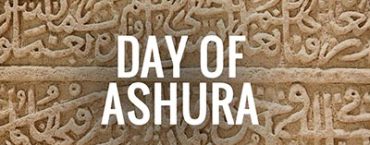By Anida Camdzic
The first ten days of Muharram – the first month of Islamic calendar significant days in a Muslim’s life.
The pinnacle of these 10 days is the fasting on the 10th Muharram, known as the Day of ‘Ashura’.
Fasting on this day expiates for the sins of the past year.
When the Prophet ﷺ arrived in Madinah he found Jews fasting and asked them the reason of their fast.
They said,” This is a blessed day. On this day Allah saved the Children of Israel from their enemy (in Egypt) and so Prophet Musa fasted on this day giving thanks to Allah.”
The Prophet ﷺ responded,“We are closer to Musa than you are.”
The Prophet ﷺ fasted on the Day of Ashura and commanded Muslims to fast. In a tradition to differentiate Muslims and the Jews, the Prophet ﷺ recommended Muslims to fast 2 days, instead of one day.
The 10th day of Muharram has left significant historical events in the history of Islam.
On this day, Allah SWT saved Prophet Musa ﷺ from the tyrannical Pharaoh.
The Prophet ﷺ said, “Fasting the day of ‘Ashura’ (is of great merits), I hope that Allah will accept it as an expiation for (the sins committed to) the previous year.” (Muslim)
The expiation of minor sins comes only if we leave major sins.
While the Prophet ﷺ recommended to his companions to fast on the Day of Ashura to expiate the sins, still we must not neglect to pray 5 times a day, fasting Ramadan, do not engage in backbiting as these are all major sins.
And if we want our sins to be forgiven, we must follow the Fardh first, then what is being recommended by the Prophet ﷺ.
The great scholar Ibn Al-Qayyim Al-Jawziyya (b. 691 AH/1292 CE) wrote:
This misguided person does not know that fasting in Ramadan and praying five times a day are much more important than fasting on the Day of Arafah and the Day of ‘Ashura’, and that they expiate for the sins between one Ramadan and the next, or between one Friday and the next, so long as one avoids major sins. But they cannot expiate for minor sins unless one also avoids major sins; when the two things are put together, they have the strength to expiate for minor sins. Among those deceived people may be one who thinks that his good deeds are more than his sins, because he does not pay attention to his bad deeds or check on his sins, but if he does a good deed he remembers it and relies on it.
Be the one who does what is Fardh and follows Sunnah for that is the best way to expiate your sins.
Do good to people, do not backbite, and save your tongue from committing sins.
Therefore, along with your prayers, take the opportunity to fast the Day of Ashura and bring yourself closer to your Creator.
In welcoming the beautiful month of Muharram, setting goals or targets is an excellent practice to improve ourselves. So, this is the perfect time for all of us to evaluate our past and strategize future to achieve goals.
Thinking of new resolution for the new year? One of the main goals for all of us as a Muslim is to continue to seek knowledge and understand our deen.
Abu Huraira reported: The Messenger of Allah ﷺ said, “Whoever travels a path in search of knowledge, Allah will make easy for him a path to Paradise.” [Sahih Muslim 2699]
Indeed, seeking knowledge is one of the ways to achieve Jannatul Firdaus. Why not consider AlKauthar Online courses as a part of your learning journey and a new goal, from in-class to online experience, easy access to study from the comfort of your home.
Set your targets with the intention of pleasing Allah and make effort, He will make things easier for you inshaaAllah.

